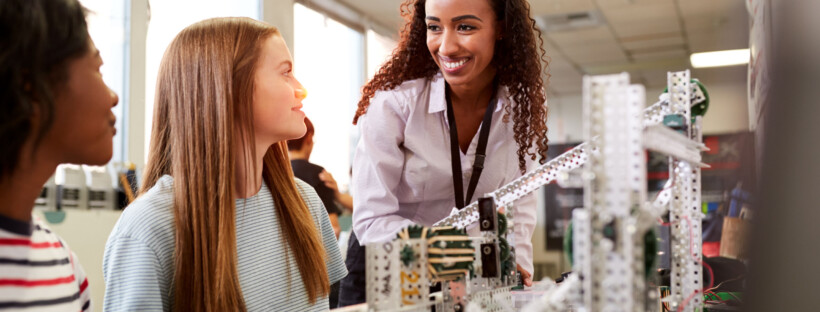Feedback to Move Forward, Thrive, and Grow: Inaugural GARC Fellows Share Their Insightful and Impressive Findings

Launched in 2019, the world’s first action research program that engages girls’ school educators around the globe in collaborative, disciplined, and sustained action research is building both a network of girls’ school educators and a database of valuable and relevant research on how girls learn best.
by Natalie Demers, Director of Research Initiatives and Programs
The pilot program cohort of the Global Action Research Collaborative on Girls’ Education (GARC) explored the topic “Feedback to Move Forward, Thrive, and Grow.” And while a pilot program typically tests the waters of a new initiative, neither we nor these inspirational educators anticipated the global tsunami of the COVID-19 pandemic and its profound impact on our communities. What these Fellows have accomplished as a part of the GARC program is impressive. That they accomplished this, however, while switching to remote learning, juggling families and teaching, and midstream shifting methods for gathering data, is—simply put—extraordinary. I want to take a moment to offer my sincere appreciation to these trailblazing Fellows for never wavering, no matter how stormy the seas, for shifting course while doing double and triple duty, and for remaining steadfast in their commitment to this program. This group of dedicated teacher-researchers paved a road, a sure footing, for the Fellows currently in the program, and for those to come.
The nine 2020-2021 Fellows in seven countries (Australia, Canada, New Zealand, South Africa, Spain, United Kingdom, and the United States) began the fellowship program by building a shared understanding behind the theory and practice of action research. From there, they each were equipped to develop their own unique action research studies addressing the topic through the lens of their own school practice in fields including Foreign Languages, Theater, Science, History, and English studies. Despite the challenges of the global pandemic, Fellows conducted their research using a combination of hybrid and in-person approaches, while also nimbly adjusting their plans and expectations as schools moved in and out of learning formats.
Key takeaways from the studies provide important insights into how girls learn best. For example, the timeliness of feedback is critical for student growth and needs to be offered soon after an assignment is completed so students can apply new understanding to material quickly and nimbly. A growth mindset is a vital component in seeing the value of feedback, knowing that it will build on students’ knowledge and skills, and will ultimately make a positive difference in their work. A key component to feedback is the opportunity for self-reflection, whereby a student can bring the internal, often critical, self forward in a tangible manner to acknowledge and address. This tool also allows students a process by which to articulate their own learning process, which includes recognizing progress and determining the next steps. With a variety of ways to share feedback, students can fully engage in what is most effective for them and embrace feedback as an empowering aspect of their learning, rather than simply a grade and end to their growth and understanding of a topic. A feedback dialogue allows students to ask questions of their feedback, and then experience the power of applying feedback by seeing results in both the short and long terms. Exploring growth areas requires a level of vulnerability and thus a trusting relationship with their teachers and peers, setting the stage for increased receptivity to the feedback and enhancing positive learning outcomes.
I invite you to read more about the Global Action Research Collaborative on Girls’ Education on our Coalition website, including Key Takeaways and Research Outcomes. Member schools can access detailed research reports and video presentations (login required). If you’re interested in learning more about this cohort’s findings, register to attend the Global Action Research Webinar Series in January and February, 2022.